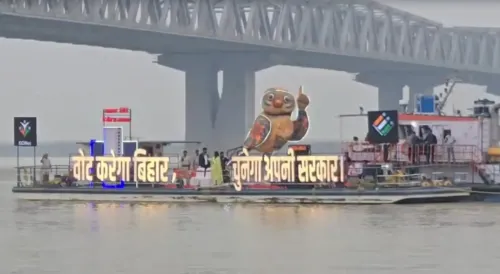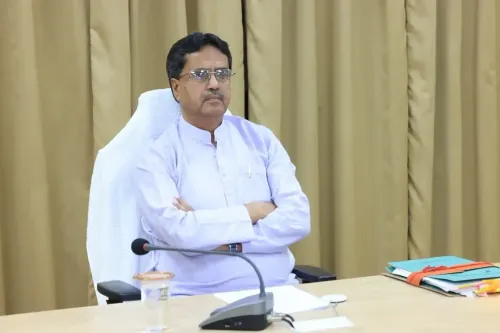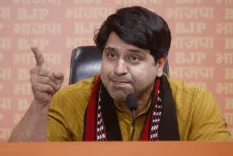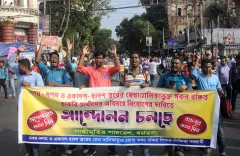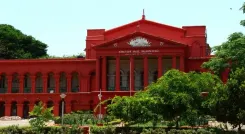Is the Justice System Really Embedded in India’s Democracy?
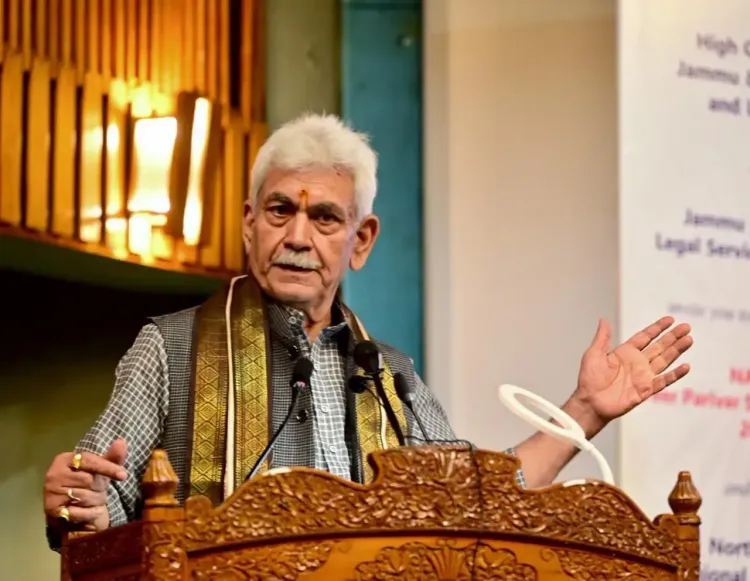
Synopsis
Key Takeaways
- Justice system integral to India's democracy.
- Importance of equitable access to legal aid.
- Empowerment of tribal communities through legal reforms.
- Initiatives launched to support defense personnel.
- Need for timely justice to uphold constitutional values.
Srinagar, July 26 (NationPress) The Jammu and Kashmir Lieutenant Governor, Manoj Sinha, emphasized on Saturday that the nation's justice system is intricately woven into the very essence of India's democracy.
During his speech at the North Zone Regional Conference titled ‘Reaffirming the Constitutional Vision of Justice for Defence Personnel and Tribals: Bridging the Gaps’, organized by the National Legal Services Authority, High Court of Jammu and Kashmir and Ladakh, and Jammu and Kashmir Legal Services Authority, in Srinagar, L-G Manoj Sinha addressed key issues regarding justice.
The gathering included notable figures such as Supreme Court Judge and Executive Chairman of the National Legal Services Authority, Justice Surya Kant; Union Minister of State for Law and Justice, Arjun Ram Meghwal; Chief Justice of High Court of Jammu and Kashmir and Ladakh, Justice Arun Palli; Chief Minister Omar Abdullah; Judge High Court of Jammu and Kashmir and Ladakh and Executive Chairman of Jammu and Kashmir Legal Services Authority, Justice Sanjeev Kumar; Supreme Court Judges, Chief Justices of various States and UTs, and General Officer Commanding-in-Chief, Northern Command, Lt. General Pratikh.
In his address, the L-G congratulated the legal experts and officials associated with the National Legal Services Authority, High Court of Jammu and Kashmir and Ladakh, and Jammu and Kashmir Legal Services Authority, while also paying homage to the valiant soldiers of the Kargil War.
“The Constitution of India guarantees justice—social, economic, and political. One of the key aspects of delivering justice is ensuring that every citizen has access to it, particularly the most disadvantaged, who need it the most,” stated L-G Sinha.
He further elaborated, “The justice system is deeply embedded in the fabric of India and has been crucial to the nation's advancement. In our society, the court is not just a place of justice but a sacred temple committed to providing equal justice, ensuring that everyone has access to the legal system, free from discrimination.”
He urged the State Legal Services Authorities to guarantee timely legal aid to Army personnel, tribal communities, and marginalized sections of society, making their lives easier and safeguarding their constitutional rights.
The L-G highlighted significant structural reforms implemented in recent years aimed at establishing social and economic justice in Jammu and Kashmir.
He noted that prior to 2019, various central laws, including the Scheduled Tribes and Other Traditional Forest Dwellers (Recognition of Forest Rights) Act and the Scheduled Castes and Scheduled Tribes (Prevention of Atrocities) Act, 1989, were not applicable in Jammu and Kashmir. Now, these laws are in effect, empowering the tribal communities.
“We are extending all constitutional protections and guarantees to the tribal population, including access to justice through the provision of free and competent legal aid,” asserted L-G Sinha.
He also mentioned the major initiatives undertaken by the Jammu and Kashmir administration to facilitate justice for Armed Forces members, reaffirming their commitment to support the tribal community.
“Amendments have been made to the Jammu and Kashmir Legal Services Authority, Rules 2020, to include the Secretary of the Zila Sainik Board as a member of the District Legal Services Authority, ensuring legal aid for soldiers,” he elaborated.
“The LG’s Sainik Sahayta Kendra has been established as a dedicated institutional mechanism to address civilian grievances encountered by soldiers of the Indian Armed Forces, whether stationed in Jammu and Kashmir or serving in other parts of the country,” the L-G added.
He emphasized that delays in justice represent a failure of the moral responsibilities of legal services authorities at the local level, who are tasked with assisting the disadvantaged.
“I am confident that this vital conference will not only address the challenges faced at the district level but also discuss necessary measures to make citizens aware of their rights under the Constitution,” the L-G concluded.
During the event, the NALSA Veer Parivar Sahayata Yojana 2025 was launched—a dedicated legal services scheme for defense personnel, ex-servicemen, and their families.
This scheme aims to establish legal services clinics within Rajya and Zila Sainik Boards to provide legal support to the Veer Parivar.
The event also featured the introduction of various initiatives, including the Defence Personnel Case Management System; Special Samvad Legal Units for tribal communities; Legal Services support centers at Rajya Sainik Boards across all states and UTs and Zila Sainik Welfare Boards in Jammu and Kashmir and Ladakh; the unveiling of a logo and tribal kiosks at Leh airport; and a mobile medical camp for the tribal population of Ladakh. Certificates of engagement as para-legal volunteers were also awarded to Veer Naris and ex-servicemen.
Prominent figures such as former Chief Justices, serving and retired Judges, senior officials from Legal Services Authorities, Security Forces, Police, Civil Administration, Veer Naris, ex-Servicemen, and respected citizens attended the event.


